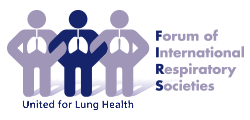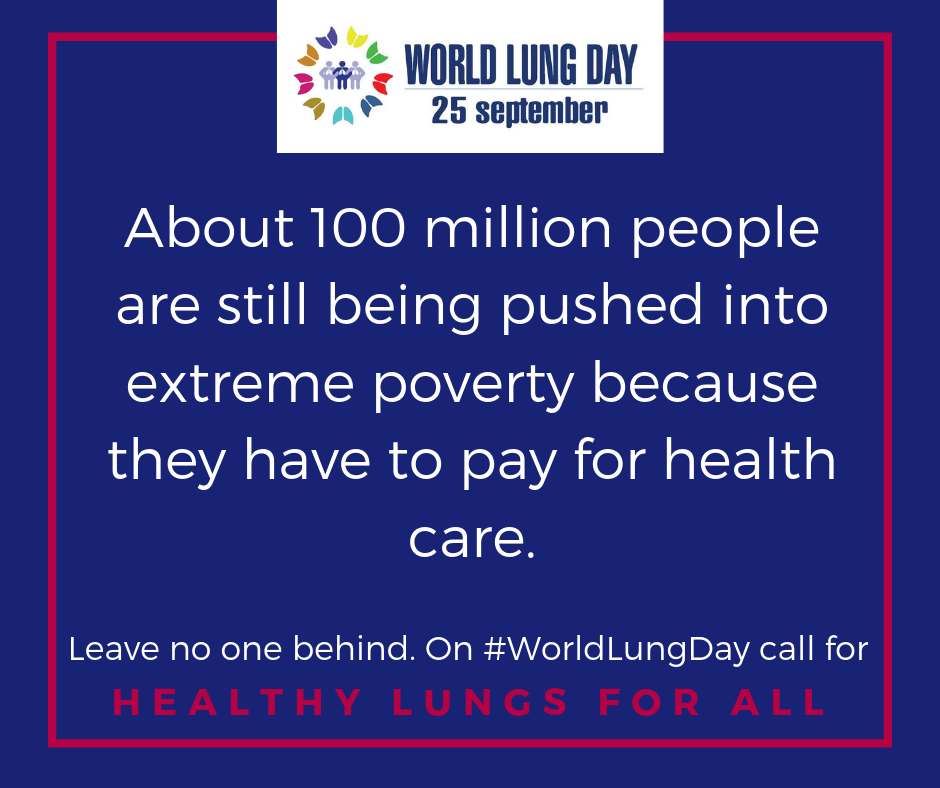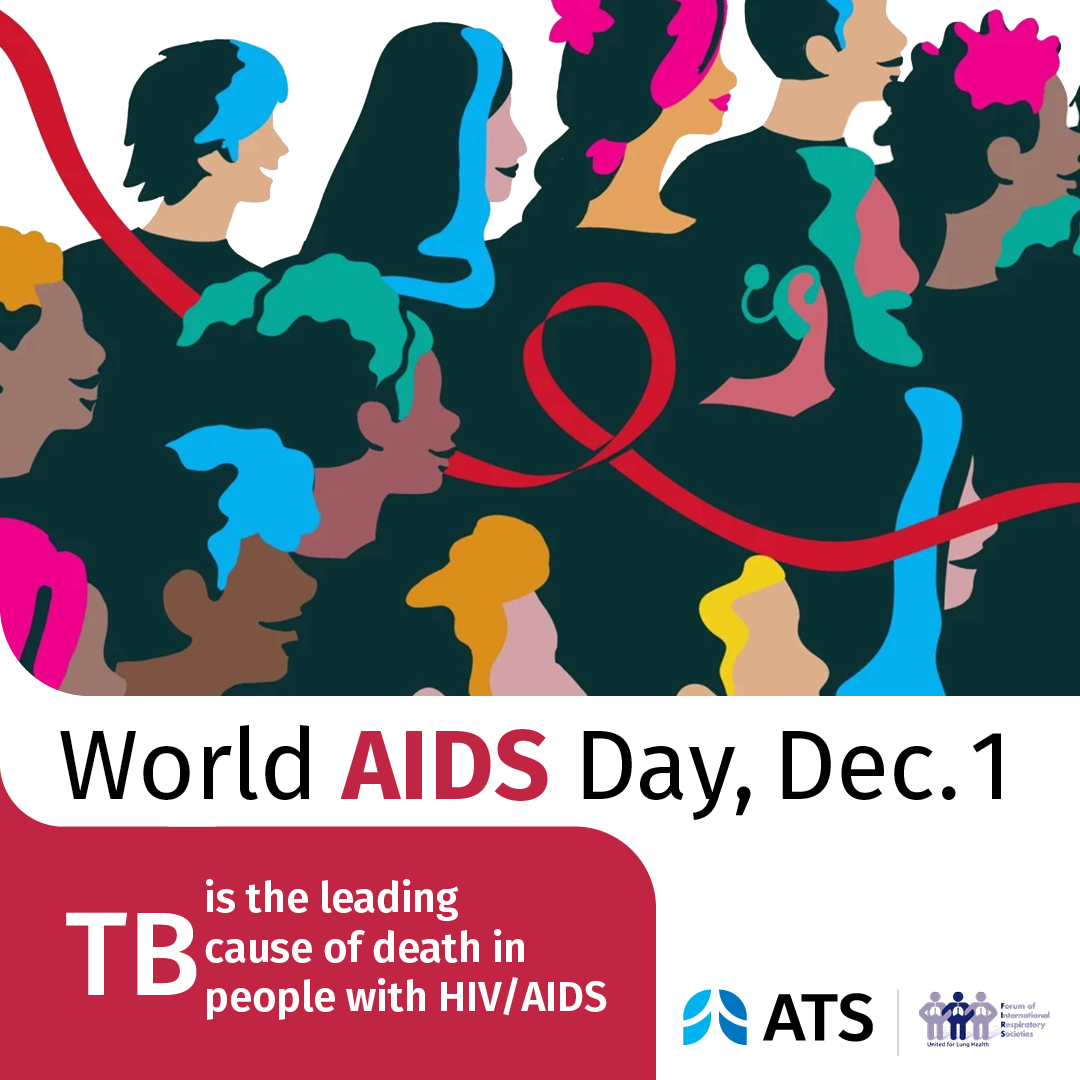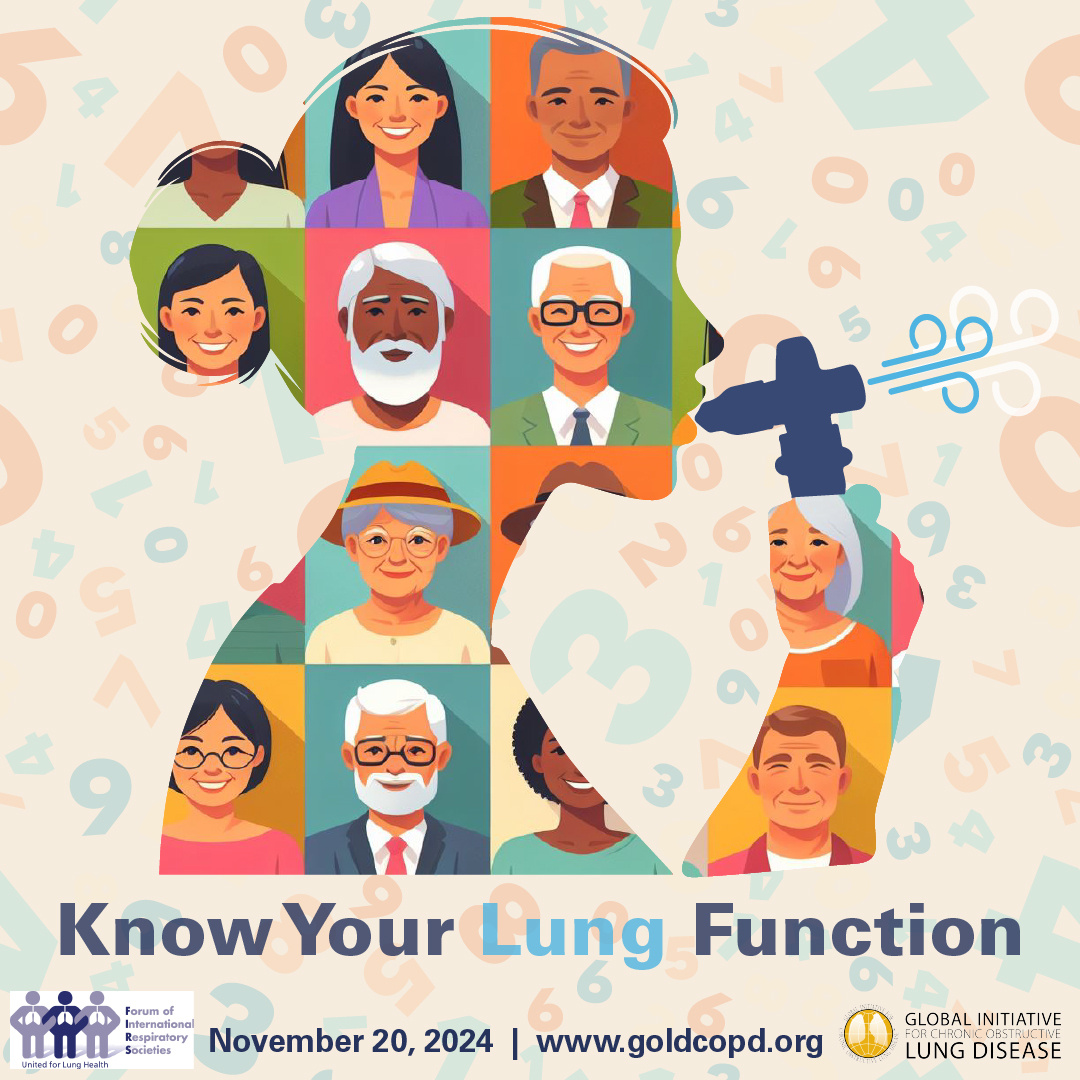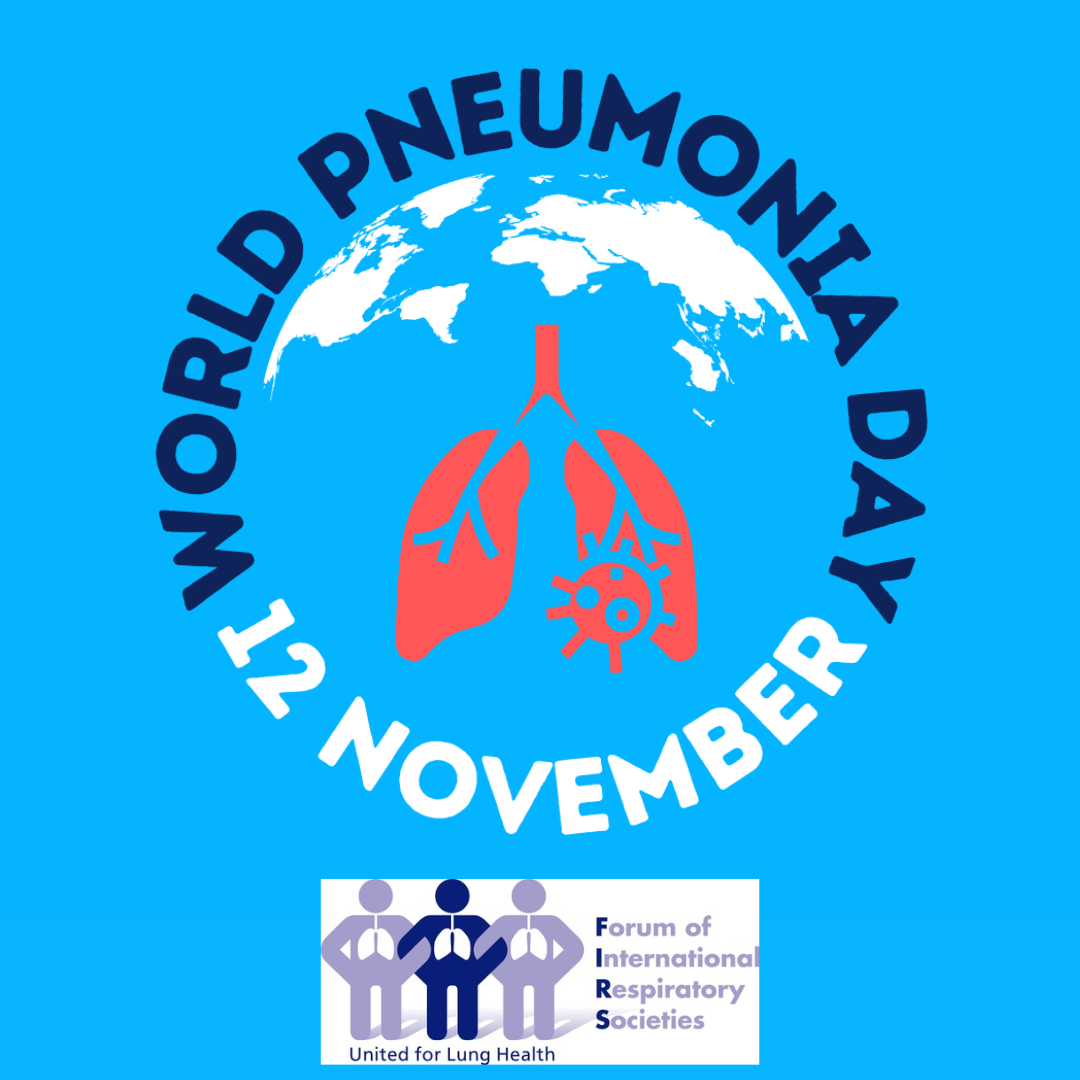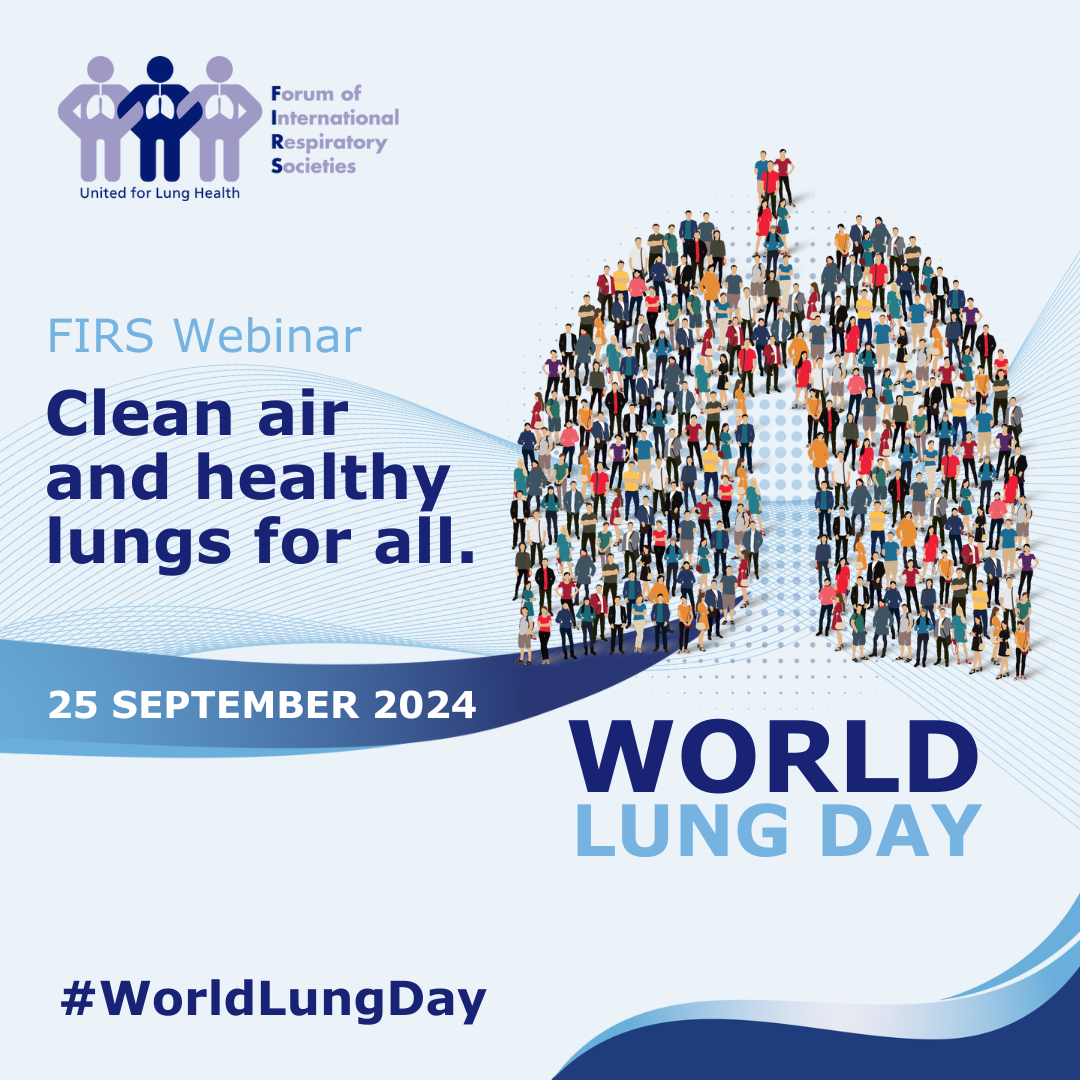In support of World Pneumonia Day, 12 November, the Forum of International Respiratory Societies (FIRS) calls for an end to preventable pneumonia deaths, ensuring equitable access to interventions for prevention and control of pneumonia.
Every minute, two children die from pneumonia, representing 16 percent of childhood deaths globally. Eighty percent of deaths are in children under two years old. Almost all deaths are in low and middle-income countries. Pneumonia is also a common cause of death or illness in the elderly, being the single most common cause of death from infectious disease.
Pneumonia is largely preventable
Good nutrition including exclusive breastfeeding for the first four to six months of life and adequate complementary foods protect against getting pneumonia.
Comprehensive immunisation including vaccines against the common germs that cause pneumonia such as pneumococcus, measles, Haemophilus Influenzae b, pertussis (whooping cough), diphtheria and influenza should be available to all children to prevent pneumonia. Avoiding tobacco smoke exposure and reducing exposure to indoor air pollution reduces the risk of pneumonia in children. Prevention of mother-to-child transmission of HIV, early use of antiretroviral therapy in HIV-infected children, and cotrimoxazole prophylaxis for HIV-infected and exposed children, can reduce the burden of childhood pneumonia.
Pneumonia is largely treatable
To treat pneumonia, timely access to appropriate management including antibiotics, referral to hospital and oxygen when needed, are critical for children who become ill from pneumonia.
Many children continue to die from pneumonia, largely due to lack of comprehensive, holistic implementation of the package of interventions for pneumonia prevention and treatment.
- Only 40 percent of children less than six months are exclusively breastfed.
- Around 170 million children in low and middle-income countries are not vaccinated against pneumonia.
- Globally, only 35 percent of eligible children get the required three doses of pneumococcal vaccine.
- Only two-thirds of children with pneumonia access treatment.
To end the preventable burden of childhood pneumonia and deaths there is a need to:
- Raise awareness about pneumonia, the leading killer of young children.
- Strengthen, accelerate and sustain interventions to prevent and treat pneumonia.
- Focus on equitable access to, and delivery of comprehensive pneumonia prevention and control programs.
- Design specific strategies to reach the “harder-to reach” populations to improve their accessibility to available interventions.
- Conduct research to develop innovative strategies to reduce the burden of pneumonia.
Together, we can end preventable deaths from pneumonia.
FIRS calls upon governments, health care providers, researchers, funders and families to ensure:
- Improved, equitable and sustained access to effective pneumonia prevention and control interventions for all by all.
- Strengthened health systems that promptly and effectively deliver strategies to reduce pneumonia deaths including provision of effective antibiotics and oxygen delivery systems.
- Increased support for strategies to prevent pneumonia including immunisation, prevention of mother-to-child HIV transmission, provision of anti-retroviral therapy for HIV-infected children, reduction of exposure to tobacco and air pollution, and increasing access to safe drinking water and sanitation.
- Support for research towards innovative diagnostic, prevention and treatment strategies.
About the Forum of International Respiratory Societies (FIRS)
The Forum of International Respiratory Societies (FIRS) is an organisation comprised of the world's leading international respiratory societies working together to improve lung health globally: American College of Chest Physicians (CHEST), American Thoracic Society (ATS), Asian Pacific Society of Respirology (APSR), Asociación Latino Americana De Tórax (ALAT), European Respiratory Society (ERS), International Union Against Tuberculosis and Lung Diseases (The Union), Pan African Thoracic Society (PATS), Global Initiative for Asthma (GINA), and the Global Initiative for Chronic Obstructive Lung Disease (GOLD).
The goal of FIRS is to unify and enhance efforts to improve lung health through the combined work of its more than 70,000 members globally.
